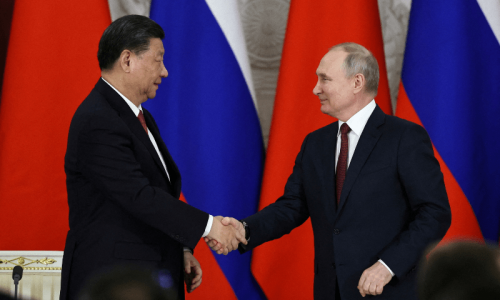HONG KONG: China’s economic boom is taking Hong Kong’s economy along with it for now, but the rapid development of infrastructure and services on the mainland could undercut the city’s longer-term competitiveness.
Hong Kong has become one of Asia’s strongest economies, expanding by more than 7 per cent annually in the past two years with help from robust exports, including re-exports of Chinese goods.
Air cargo through the city is expanding as a result. But growth in sea trade has diminished because the cost of shipping a 40-foot container through expanding ports in southern China, including trucking, is US$200 less than through Hong Kong.
The city’s share of southern Chinese ports’ trade with Europe and countries across the Pacific slumped to 40 per cent last year from 75 per cent in 2000, according to consultants McKinsey & Co, and Hong Kong lost its place as the world’s busiest container port to Singapore.
“The withering away of our seaport trade is weakening Hong Kong’s position as a supply chain management centre,” said Robin Chiu, director-general of the Federation of Hong Kong Industries.
Chief Secretary Rafael Hui warned last month that Hong Kong risked being marginalised by the development of ports and other infrastructure in southern China’s Pearl River Delta, a view underscored by tycoon Li Ka-shing, head of Hong Kong conglomerate Hutchison Whampoa.
The loss of sea trade highlights a broader dilemma: port operators like Hutchison Whampoa have little incentive to cut fees and draw business to Hong Kong because they are also major investors in rival ports like Yantian across the border.
McKinsey & Co estimates that a continued shift in trade to south China ports will put 183,000 jobs at risk and shave HK$97 billion (US$12 billion), or about 6 percent, off
Hong Kong’s gross domestic product.
“The loss of 60,000 jobs adds 2 per cent to unemployment,” said Chiu. “That’s not easily replaceable.”
To be sure, China’s rise has also helped create employment in some sectors until now.
Thousands of jobs have been generated by a flood of tourists from the mainland in the past two years as well as the city’s position as a global financial centre at a time of massive fund-raising by mainland companies on the Hong Kong bourse.
But destinations worldwide are now opening up to the Chinese traveller and China’s capital markets will eventually develop.
Joseph Yam, chief executive of the Hong Kong Monetary Authority, the central bank, called last month for mainlanders to be allowed to invest in Chinese companies listed in Hong Kong to mobilise Chinese savings and keep business flowing to the city.
—Reuters











































Dear visitor, the comments section is undergoing an overhaul and will return soon.